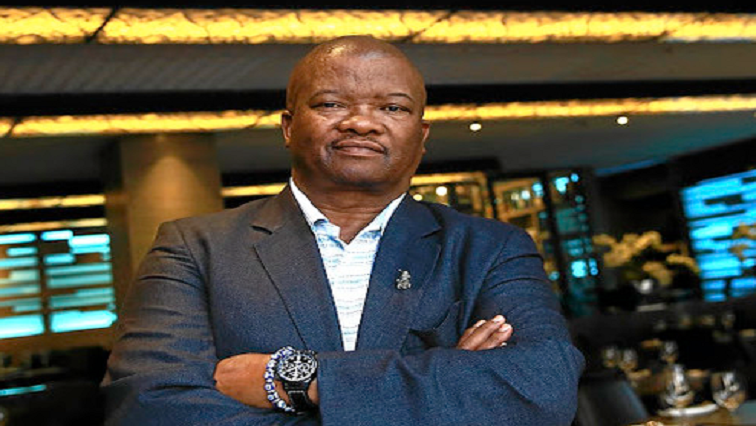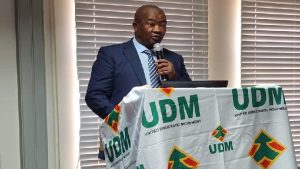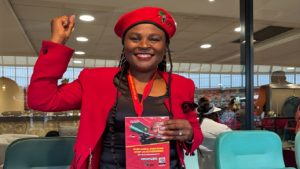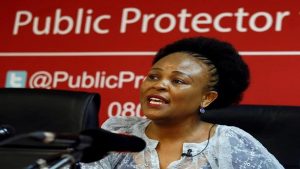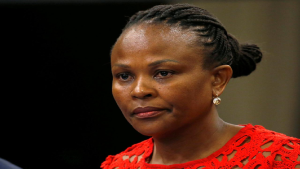National Assembly Speaker, Thandi Modise has requested the Rules Committee to look into concerns raised by UDM leader Bantu Holomisa on the voting rights of smaller parties represented on the Section 194 committee to inquire whether or not there are grounds for the removal of Public Protector Busisiwe Mkhwebane from office.
The 26-member committee will enquire whether or not there are grounds for the removal from office of Public Protector Advocate Busisiwe Mkhwebane.
Parliament votes for an inquiry into Public Protector Busisiwe Mkhwebane’s fitness to hold office to proceed:
Holomisa wants small parties to have voting rights on the 26 member committee. Spokesperson for Parliament Moloto Mothapo says Modise wants the rules committee to look at the implications of varying the current approach.
“Because of the nature of the party proportional representation and practical necessities, the practice has been to limit the composition of committees while allowing at the same time that any member can attend any committee however she has agreed that others could be structured differently.”
In her reply, Modise says she will refer Holomisa’s concerns to the National Assembly’s Rules Committee to consider the implications of a varying approach to current practices.
She says Section 57 of the Constitution provides that the National Assembly may determine its own internal arrangements with due regard to representative democracy. The rules must also provide for the participation of minority parties in a manner consistent with democracy.
In March, a panel of experts headed by retired Justice Bess Nkabinde found there was prima facie evidence of incompetence or misconduct against Mkhwebane.
Public Protector Busisiwe Mkhwebane confident she will be cleared of any wrongdoing:
In early April, political parties submitted the names of members who will serve on the ad hoc committee that will look into whether there are grounds for the removal from the office of Mkhwebane.
The largest parties in parliament, the ANC, the DA and the EFF are sending senior members to the committee. The ANC delegation includes Deputy Chief Whip, Doris Dlakude who is likely to lead both the delegation and the committee.
The DA’s representatives include Parliamentary Caucus leader Annelie Lotriet. This is the party that tabled the motion, through its Chief Whip Natasha Mazzone, for Mkhwebane to be removed.
The EFF, which is opposed to Mkhwebane’s removal, is sending its President Julius Malema.
The IFP will be represented by Zandile Majozi and the Freedom Front Plus by Corne Mulder.
These five parties are the only ones that will constitute 11 voting members while the rest will each have one non-voting member.
The ANC will have the final say in all decisions as it has six voting members and the other four together have five.
Holomisa has raised concern that smaller parties do not have voting members on the committee.
“The fact that there are fourteen political parties represented in Parliament is an expression of the will of the people of the Republic of South Africa. The so-called large parties must stop this false and arrogant thinking that they are “doing us a favour” by “allowing us to participate” in Parliamentary processes in a manner that is determined by them, and not in a manner that respects the will of the people. It is the sheer hubris of those who claim to be democrats and fighters for democracy care so little for the will of the people,” Holomisa wrote to Modise.
He says Parliament is taking away the rights of smaller parties.
“In light of this, I find it problematic, wholly undemocratic and unconstitutional for Parliament to take away the right of smaller parties to vote in the aforementioned Section 194 Committee. I do not understand how the IFP and the Freedom Front Plus, political parties which carry disparate and different mandates from their respective constituencies are expected to vote on behalf of the eleven smaller parties. This practice both undermines the role of smaller parties in Parliament and violates their right to participate fully in all the decision-making processes of Parliament. The current “system” of merely satisfying the letter of Parliamentary processes, but not honouring the spirit of democracy and participation is flawed and smaller parties cannot be treated as mere tokens.”


